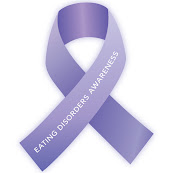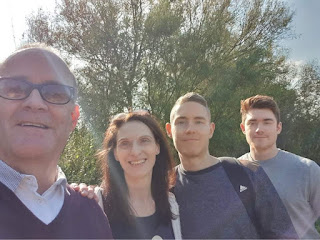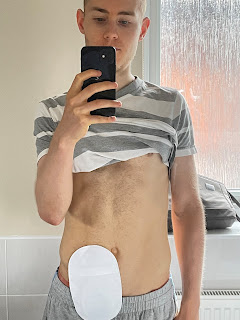In Part 1, I included a few ways that some of the current "awareness" might be doing more harm than good, both to sufferers of eating disorders and to the stigma that exists within wider society.So now I want to put together a list of things that can be included in articles, awareness campaigns and the media, so we can raise awareness without creating harm, triggering sufferers or adding another level of stigma. Please also ensure that BEAT Guidelines are followed as these are always a great guide. Eating Disorder Media Guidelines - Beat (beateatingdisorders.org.uk)
1. Diversity, Diversity, Diversity!
This is probably the single most important thing, but the one that is far too often missed.
Eating disorders can affect anyone, of any age, gender, body size, ethnicity, sexuality, religion, class, or any other demographic.
However how often do we only see one type of eating disorder (usually Anorexia) portrayed in one way (usually a white, cisgender, middle class girl/teenager), and talking about only one aspect of eating disorders (usually losing a lot of weight, being hospitalised and then regaining weight to "recovery")?
Too often is the answer.
This is in no way to say that white, cisgender, middle class young women with Anorexia don't suffer, nor is it to say their stories don't deserve to be heard. They absolutely do.
This is to say that they are not the only sufferers (only 7% of sufferers are underweight, and not everyone with Anorexia is underweight), and we have to get better at showing the diversity of eating disorders. This means:
- Include a wide range of diagnoses (Anorexia, Bulimia, Binge Eating Disorder, ARFID, etc..)
- Include a wide range of body sizes with those diagnoses.
- Gender diversity, around 25% (or more) of sufferers are men.
- Include racial diversity, and diversity of backgrounds.
- Include voices from the LGBTQ+ Community.
In short, don't just go along with the stereotypes. Eating disorders are as diverse as we are!
2. Include a Wide Range of People
This links with #1, however it goes a bit further. Even though millions of people suffer with eating disorders, we tend to only hear from a few people - the main campaigners and advocates.
Whilst their voices deserve to be heard, there is plenty of space for more voices, and we all have a duty to amplify and promote the voices of those who don't get as much attention.
Also, the campaigners who have a bigger audience (I include myself in this) - I feel - have a duty to amplify the diversity of eating disorders, as if not we risk perpetuating a stereotype. That doesn't mean not sharing our stories, but it does mean trying to avoid binary statements, whilst also amplifying the voices of those who have different experiences/diagnoses/perspectives. There is plenty of love to spread around!
3. Talk about the "taboo" subjects
A tricky one, and one where care is needed to avoid triggers as much as possible, however the media has a habit of only talking about the "socially accepted" eating disorders and their symptoms.
When actually, symptoms, manifestations and ways they can affect people's lives are far more diverse than that. We need to talk more about over-exercise, purging, Binge Eating, diabulimia, alcohol issues, damage to sexual function, and how they can affect someone financially, socially, physically and mentally.
Raising awareness only works if we widen people's views and include a wide range of experiences. We want people to feel less alone, like they're not the odd one out. We only do that by talking about the subjects many avoid. We do that by challenging society's standard perspective.
4. Promote Health at Every Size and Body Liberation
Weight stigma harms, fact.
Across the board though, weight stigma still clouds our view. Whether it be talking about the "Ob*sity crisis/epidemic", using BMI as a measure of health, or valuing larger bodies less than we do smaller ones when talking about ED awareness... weight stigma harms awareness, it harms sufferers and it prevents many from being able to seek help.
We need to listen to those in larger bodies, we need to be unapologetically liberating to larger bodies, ditch diet culture and liberate everyBODY.
If we don't, then all this "awareness" will be for nothing, for 2 main reasons:
- We will continue to prevent people in larger bodies from finding their best quality of life, and we will continue to oppress, whilst also preventing people with eating disorders in larger bodies seeking support.
- We will harm everyone with an eating disorder (and wider society as well)
-------------------------------------------------------------------------------------------------------------------------
So, realistically, the best way to raise awareness is:
- Nuance
- Promote diversity
- Amplify underrepresented voices
- Be weight neutral
- Ditch Diet Culture!
There is so much more too, please add any thoughts you have.
I truly hope that one day, we can have awareness that achieves its truest goal, which is to make people feel less alone, to amplify all voices and that results in real, positive change to the lives of sufferers, their loved ones, and to society as a whole.



Comments
Post a Comment